|
|
|
|
|
Guest Editorial
I am pleased to write a Guest Editorial for this edition of the Chronic Care Network Newsletter.
Everyone in the Chronic Disease Network has had firsthand experience of how the social, economic and cultural environments in which we live impacts on the causes and management of chronic disease. The challenge we face is what can we do when so many of the social determinants appear outside the control of the health system? How can we make a difference?
When we ask the question: “Where is health created?” the answer is rarely in a hospital Emergency Department or more investment in technology. People understand that healthy natural, built, social and economic environment s are the foundations on which health is built.
A report by National Centre for Social and Economic Modelling (NATSEM) modelled what would be the impact if social determinants such as income, employment, education were equally distributed on health, health service use and cost.
They found half a million Australians could be freed from chronic illness, $2.3 billion in annual hospital costs could be saved and the number of Pharmaceutical Benefits Scheme prescriptions could be cut by 5.3 million annually; 60,000 fewer people would need to be admitted to hospital annually resulting in savings of $2.3 billion in hospital expenditure; 5.5 million fewer Medicare services would be needed each year, resulting in annual savings of $273 million; 5.3 million fewer Pharmaceutical Benefit Scheme scripts would be filled each year, resulting in annual savings of $184.5 million each year.
Australia suffers the effects of a major differential in the prevalence of long-term health conditions. Those who are most socio-economically disadvantaged are twice as likely to have long-term health conditions as those who are the least disadvantaged. Put another way, the most poor are twice as likely to suffer chronic illness and will die on average three years earlier than the most affluent (NATSEM). In NSW, while the health of the whole population is improving, the gap between the most advantaged is improving more rapidly than that of the least advantaged resulting in a widening of the gap.
So what can we do? Faced with huge issues such as poverty, poor housing, lack of work, limited education and poor health literacy it is easy to feel there is nothing that front line workers and their managers can do about the social determinants of health (NATSEM). This belief is now being challenged. WHO has published a report “Putting our own house in order” that suggested two roles for the health system:
-
improving how we do our own business within the health system, which includes ensuring equity of access to health services and providing services that ameliorate and remedy the health disadvantages among sub-groups in the population and that are caused by social determinants such as poverty, poor living conditions and unemployment; and
-
improving our investment and approach to working with other sectors so that we are instrumental in developing collaborative, inter-sectoral solutions that create the conditions for health for all groups in the population.
There are moral and economic reasons for addressing this issue and we can make a difference by having a sustained focus on access and equity based on simple, achievable goals balanced with action to address structural issues.
Elizabeth Harris
Associate Professor (Health Equity)
Centre for Primary Health Care and Equity
and
Director, Health Equity Research and Development Unit
Sydney Local Health District
|
|
|
Call for Members
The ACI is keen to attract a diverse range of people to become members of the Chronic Care Network. Growing our membership base is important to ensure the Chronic Care Network has good reach and can access advice and information from a broad cross-section of the community about opportunities to improve chronic care. We are especially interested in increasing the number of consumers, carers and community members involved in the Network. We encourage you to promote the Chronic Care Network to clients and colleagues who may be interested in joining the Network. People interested in applying for membership should
complete the short application form. Should you require further information on the Network please contact the one of the network Co-Chairs:
Linda Soars: Linda.Soars@sesiahs.health.nsw.gov.au or
Lissa Spencer: lissa.spencer@sswahs.nsw.gov.au
|
|
|
Executive Committee Update
Items of interest from the Chronic Care Network Executive Committee meetings on 25 February and 22 April 2015 included:
-
The CDMP Participant Experience Focus Group Pilot was held 31 March 2015 at South Eastern Sydney LHD. A Focus Group Facilitation Guide had been circulated and Expressions of interests from LHDs wishing to conduct CDMP Participant Experience Focus Groups are currently being received.
-
Ulitising the learnings from the Chronic Care Network Workshop last October 2014, a Social Determinants of Health Working Group will be established to progress the development of a tool to help formulate future Guidelines or Models of Care. Anthony Brown from Health Consumers NSW and member of the Chronic Care Network Executive will chair the Working Group.
-
The ACI has been commissioned to lead implementation of two streams of the NSW Integrated Care Strategy: Patient Reported Measures and Risk Stratification. Erin Lilley, Manager of Risk Stratification, and Melissa Tinsley, Manager of Patients Reported Measures (PRMs) provided briefings to the Executive on progress.
-
Eunice Simons and Scott Trindall from the Chronic Care for Aboriginal People team briefed the Executive on their current work including the NSW Knockout Health Challenge, a statewide competition which encourages teams of indigenous people to lose weight and get healthy; National initiative on rheumatic heart disease and acute rheumatic fever; and the One Deadly Step program screening program.
-
Maeve Eikli ACI's Communications Manager briefed the Executive on the many means by which the Communications team can disseminate messages to chronic care stakeholders and across the wider NSW health network.
|
|
|
Recent News
Establishment of Primary and Chronic Care Team
The remit of the chronic care team has been widened and the name changed appropriately to Primary and Chronic Care Team. The new name reflects the extended focus.
A Project Officer with Networking Health NSW (previously GP NSW) has been funded to ensure close links with medicare locals (soon Primary Health Networks). The position reports to the Manager, Primary and Chronic Care. See below for profile of the current Project Officer.
The team provides a secretariat to the ACI’s GP Clinical Advisory Group. Input from GPs is elemental. to improving primary health care and the resource of the GP Clinical Advisory Committee is shared across all ACI Networks to improve the primary care links of all work done by ACI.
ACI has also established regular meetings with the Aboriginal Health and Medical Research Council (AH&MRC) the peak body for Aboriginal Medical Services. The Primary and Chronic Care Team will provide secrtarial support to these meetings but like the GP Clinical Network, the resource wil be made available to all networks across ACI.
 Diane Gee-Clough - Project Officer, Networking Health NSW Diane Gee-Clough - Project Officer, Networking Health NSW
Diane is the Project Officer, Chronic Disease Management Program at Networking Health NSW – formerly General Practice NSW. The Primary and Chronic Care team work closely with Diane in her role which is funded by the ACI to support Medicare Local and LHD partnerships in delivering the Program and exploring with stakeholders how it can be strengthened. Diane has a background in project management in the educational publishing sector and within tertiary education (health faculties). Diane commenced with Networking Health NSW in 2014 as Office Manager where she was orientated to the Chronic Disease Management Program.
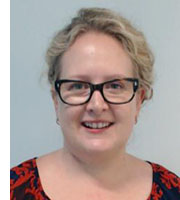 New Team member – Tara Dimopoulos-Bick
New Team member – Tara Dimopoulos-Bick
Tara is the newest member of the Primary and Chronic Care team after joining ACI in January 2015. Tara is a Social Worker and holds a Master qualification. She has clinical experience across a number of sectors and has also managed and delivered large-scale projects nationally. Tara is passionate about consumer empowerment and the translation of genuine and meaningful engagement into practice. Most recently, she led the development and implementation of a clinical decision making and peer work pilot through headspace National.
|
|
|
Executive Committee Profiles
Our Co-Chairs
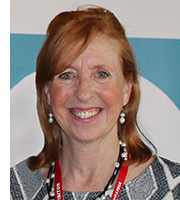 Lissa Spencer is Co-Chair of the ACI Chronic Care Network. She is a clinical specialist physiotherapist who works in pulmonary, cardiac and chronic disease rehabilitation at Royal Prince Alfred Hospital. As well, she works with the Australian Lung Foundation, as Chair of the 'Lungs in Action' Program and State coordinator of 'Lungnet' (patient support network). Lissa Spencer is Co-Chair of the ACI Chronic Care Network. She is a clinical specialist physiotherapist who works in pulmonary, cardiac and chronic disease rehabilitation at Royal Prince Alfred Hospital. As well, she works with the Australian Lung Foundation, as Chair of the 'Lungs in Action' Program and State coordinator of 'Lungnet' (patient support network).
Lissa is also Co-Chair of the ACI Pulmonary Rehabilitation working group. Her PhD research focused on the long-term maintenance of exercise capacity and quality of life following the completion of pulmonary rehabilitation in people with COPD.
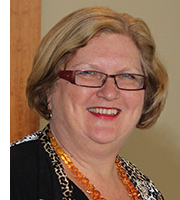 Linda Soars is the Integrated Care Manager for the South Eastern Sydney Local Health District, in Sydney, NSW and the Co-Chair of the Chronic Care Network with the Agency for Clinical Innovation in NSW.Linda is currently responsible for the strategic development of long term condition management and partnerships in the region with a team of clinician/managers focused on service redesign. Linda Soars is the Integrated Care Manager for the South Eastern Sydney Local Health District, in Sydney, NSW and the Co-Chair of the Chronic Care Network with the Agency for Clinical Innovation in NSW.Linda is currently responsible for the strategic development of long term condition management and partnerships in the region with a team of clinician/managers focused on service redesign.
Linda is currently responsible for the strategic development of chronic disease services and partnerships in the region with a team of clinician/managers focused on service redesign.
Linda’s work interests are to develop a broader relationship with primary health care partners, improve the relationships and transmission of information with the local GPs and to create a care coordination framework to manage patients who frequently attend hospital.She also has responsible for co-ordinating the Integrated Care Strategy and projects within the region. Recent team projects have centred on documenting and streamlining the patient journey for chronic disease patients to build capacity in chronic disease management pathways and integration of diabetes services at a regional level.
|
|
|
Integrated Care Implementation Update
Planning and Innovation Fund
Full details of all successful applications for the Planning and Innovation Fund are now available on the Whole of Health website. These represent a wide range of programs, aimed at integrating services to better connect patient care across NSW.
Demonstrator sites
The Demonstrator sites are sharing learnings around their approaches to Integrated Care in this week’s Joint Demonstrator Meeting. The Ministry of Health will provide a platform for these lessons to be shared more widely over the coming months.
Recruitment is progressing for additional resources to assist the LHD Demonstrator sites with their delivery plans, particularly in terms of developing the strategic eHealth components, providing relevant guidance and assessing dependencies with other programs and projects across the State.
|
|
|
Evaluation of the Chronic Disease Management Program released
The NSW Chronic Disease Management Program (CDMP) – Connecting Care in the Community - is a free service for people with chronic disease who have difficulty managing their condition and who are at risk of hospitalisation. The Primary and Chronic Care Team provide support to Chronic Disease Managers in Local Health Districts, with a statewide remit for the program. The George Institute was engaged in 2011 to undertake an independent State-wide evaluation of the CDMP. The Report noting its findings is available on the CDMP webpage.
|
|
|
Asthma Foundation: New Pilot Project
The Patient Support Pilot Project has been launched this month by the Asthma Foundation. The Patient Support Pilot is an elaboration of the already effective service we provide to patients via our telephone based information and support team which will involve incorporating principles of health psychology, motivational interviewing and goal setting to reconstruct asthma patient’s maladaptive beliefs about their illness and their self-management responsibilities in order to sustainably improve their preventer medication adherence, asthma control and quality of life.
The Foundation began recruiting for participants in mid-March. Interested participants with asthma, aged over 18 years who are prescribed a preventer for their use should contact the Asthma Foundation ask@asthmafoundation.org.au , Robyn McKern 9018 0509 or visit the Foundation's website.
|
|
|
New Website at National Stroke Association
National Stroke Foundation is in the process of building a website to assist stroke survivors and their families to make the most of life after stroke, physically, emotionally and psychologically. This website is called enableme (pronounced as enable me).
enableme is being developed to ensure stroke survivors and carers have access to:
-
Resources and information to make informed decisions
-
Sharing knowledge and experience – i.e. the tips and techniques employed by those with an acquired disability in everyday life
-
Tools to aid in the process of self-directed rehabilitation
-
Resources to find local health practitioners and local support and assistance.
enableme will assist people to direct their own rehabilitation, set recovery goals, and be presented with the latest information. It will also provide access to a community of people who are in all different stages of their recovery after stroke to bounce ideas off and get tips and advice.
enableme will be highly accessible and will mould itself around individual needs whether people have vision, hearing, cognitive, communication or mobility issues.
At every stage of planning the portal the people who will use it have been consulted, from choosing a name to planning what enableme should do. Watch a video explaining enableme.
|
|
|
News from the Chronic Care for Aboriginal People Team
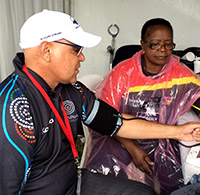 The Chronic Care for Aboriginal People (CCAP) team have been busy with the Launch of the newly revised 1 Deadly step program. This is a screening and follow up initiative in partnership with The George Institute for Global Health using a software application to support the screening and follow up result. The first event was at Tharawal Aboriginal Medical Service at Campbelltown with a further nine sites throughout the State to be targeted.
The Chronic Care for Aboriginal People (CCAP) team have been busy with the Launch of the newly revised 1 Deadly step program. This is a screening and follow up initiative in partnership with The George Institute for Global Health using a software application to support the screening and follow up result. The first event was at Tharawal Aboriginal Medical Service at Campbelltown with a further nine sites throughout the State to be targeted.
The first of one of the challenges (The George Rose) NSW Knockout Health Challenge has commenced with a record 33 teams throughout the State participating which equates to more than 900 participants. The challenge aims to engage Aboriginal communities to targeting the NSW health priorities of physical activity and obesity. The Challenge aims to motivate Aboriginal people to manage their lifestyle-related risk factors for chronic disease and reduce prevalence of obesity through participation in a series of challenges, related to weight loss and physical activity. All Challenge participants must have a medical clearance form completed prior to commencing the Challenge. Weigh-in data must be confirmed and signed by a GP or Nurse at the start and end of the Challenge. Team results are based on the largest weight loss percentage. Winners are awarded community grants to support local healthy
lifestyle initiatives.
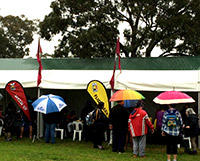 Over the years, the average total percentage weight loss across program completers has been around 4.7%. New national guidelines indicate that a 5% initial weight loss can reduce the risk of health problems like diabetes and cardiovascular disease, so this gives us a good indication that the program is making progress in tackling chronic disease in Aboriginal communities. Over the years, the average total percentage weight loss across program completers has been around 4.7%. New national guidelines indicate that a 5% initial weight loss can reduce the risk of health problems like diabetes and cardiovascular disease, so this gives us a good indication that the program is making progress in tackling chronic disease in Aboriginal communities.
The CCAP team are also working in partnership with RHDAustralia to address Rheumatic Heart Disease and Acute Rheumatic Fever in NSW which aligns with “The Better Cardiac Care for Aboriginal and Torres Strait Islander People” recommendations of the Australian Health Ministers’ Advisory Council. ACI has the lead on priority five “Strengthen the diagnosis, notification and follow up of rheumatic heart disease”. Australia has among the highest recorded rates of rheumatic heart disease, despite the disease being almost eradicated in developed countries. Rheumatic Heart Disease Australia (RHDA) is holding a free 2 day workshop – Think ARF Stop RHD, on the prevention of rheumatic heart disease which will highlight the importance of early detection among Aboriginal and Torres Strait Islander communities, Maori and Pacific Islander peoples, and those who have
migrated to Australia from low to middle income countries where ARF and RHD remains common. This free RHDA event is held in partnership with the Poche Centre for Indigenous Health, NSW Health, NSW Agency Centre for Clinical Innovation (ACI), Aboriginal Health & Medical Research Council (AH&MRC) & the Heart Foundation (NSW). See upcoming Events, Education and Training for more information.
|
|
|
Neurodegenerative and Neuromuscular Conditions Solution Design Workshop
On the 5th March 2015, the ACI Chronic Care Network hosted the Neurodegenerative and Neuromuscular (ND&NM) Conditions Solution Design Workshop. The aim of the workshop was to develop a prioritised list of responses that can work to improve care for people with ND&NM Conditions.
The workshop was attended by clinicians, managers, consumers, carers and ACI staff, including Managers of the co-sponsoring ACI networks - respiratory, rehabilitation, palliative care, and transition care.
Director of ACI Primary Care and Chronic Services, and Chair of the ND&NM Working Group, Chris Shipway, said: “There was great energy and enthusiasm in the room. I am confident that we have affirmed or commenced the development of a range of potential solutions for consideration by the sponsoring networks”.
The workshop marks a significant milestone in the ND&NM Conditions Working Group’s project aimed at developing a set of recommendations on how to deliver or enhance current and developing models of care to improve outcomes for people with ND&NM conditions.
The ND&NM Conditions working group was convened in 2014. It includes experts in provision of clinical services, peak bodies and service providers that represent patients and families, as well as representatives of the ACI Transition Care, Rehabilitation, Palliative Care and Respiratory Care Networks.
The Working Group is currently finalising a Diagnostic Report “Care Pathways for People with Neurodegenerative and Neuromuscular Conditions”. The Workshop provided an opportunity to verify the findings of the Diagnostic Report with colleagues, consumers and carers.
|
|
|
11th Annual ADMA Conference call for abstracts
The conference is being held on the 10th & 11th of September.
Closing date for oral abstracts has been extended to 1 May 2015 (5pm AUST EST).
Closing date for poster abstracts: 4 August 2015.
The theme for this year's conference is Count me in: Partnerships in Chronic Care.
|
|
|
Upcoming Events, Education and Training
Asthma Australia’s 2015 Australasian Asthma Conference: Brisbane, 4-5 May 2015
The 2015 Australasian Asthma Conference hosted by Asthma Australia will be held at the Sofitel Hotel, Brisbane on 4-5 May, 2015. For more information including the program, timeline, registration and abstracts.
Think ARF Stop RHD is a 2 day workshop to be held by Rheumatic heart Disease Australia at Sydney University, 11-12 May 2015, followed by an evening symposium on the prevention of rheumatic heart disease which will highlight the importance of early detection among Aboriginal populations.
This free RHDA event is held in partnership with the Poche Centre for Indigenous Health, NSW Health, NSW Agency Centre for Clinical Innovation (ACI), Aboriginal Health & Medical Research Council (AH&MRC) and the Heart Foundation (NSW). All health care workers are invited to register.
Brave to Bold: APNA National Conference 2015: Gold Coast, 14-16 May
Brave to Bold is the title of APNA's seventh national conference for nurses in primary health care including general practice. The conference offers nurses a distinguished program and opportunities to network with nurse colleagues from around Australia. The Lung Foundation is offering a pre-conference workshop on the topic of Simplifying medicines and other management strategies for COPD. For further information.
Working with Health Consumers in Primary Health Care Forum 3 June 2015
The forum is aimed at primary health care professionals with responsibility for community engagement, health consumers who are members of community engagement committees and consumer advisory groups, active health consumers, clinical leaders, senior managers, board directors, strategic leads and policy developers across the primary health care sector.
Aboriginal Health Conference 2015 4-5 July 2015, Perth
The conference theme Healthy families – healthy futures will be addressed through presentations, clinical updates, practical workshops, hands-on concurrent sessions and case study learning opportunities that are professionally accredited and delivered by expert specialists and speakers
The 2015 Primary Health Care Research Conference
The conference will be held at Adelaide Convention Centre from 29-31 July 2015. Early Bird registrations close 3 June 2015. This conference is the key national opportunity for knowledge exchange and the fostering of integrated networks across the breadth of the health system.
The 11th Annual ADMA Conference Count me in: Partnerships in Chronic Care
This conference is being held at Brisbane Convention Centre on 10-11 September 2015. Conference organisers have advertised a call for abstracts closing 24 April 2015.
The 9th Health Services and Policy Research Conference
This conference is being held in Melbourne on 7-9 December 2015. The theme this year is “From data to delivery: Connecting research, policy and practice for better health outcomes.” The 2015 international conference will focus on the interface between research, practice and policy, with the ultimate aim of using research to improve health outcomes for society.
|
|
|
Recent Reports, Articles and Information Related to Chronic Care
Aboriginal Health
National Key Performance Indicators for Aboriginal and Torres Strait Islander primary health care: results from December 2013
Canberra : Australian Institute of Health and Welfare; 2014
This is the second national report on the national Key Performance Indicators (nKPIs) data collection. It captures data from over 200 primary health care organisations that receive funding from the Australian Government Department of Health to provide services primarily to Aboriginal and Torres Strait Islander people. It presents data for 19 ‘process of care’ and ‘health outcomes’ indicators which focus on the prevention and management of chronic disease and maternal and child health. The report shows improvements against most of the ‘process of care’ indicators.
Closing the Gap Prime Minister’s report 2015 Australia. Government; 2015
This is the seventh Closing the Gap Report produced since targets were set by the Council of Australian Governments (COAG) in 2008. Despite good intention and considerable investment by successive governments, the disparity in outcomes remains. Although there has been some improvement in education and health outcomes for Indigenous Australians, in many areas progress has been far too slow. It is profoundly disappointing that most Closing the Gap targets are not on track to be met.
Draft national framework for health services for Aboriginal and Torres Strait Islander children and families
Australia. Department of Health; 2014
Articulates a vision and principles for the delivery of child and family health services to Aboriginal and Torres Strait Islander people across Australia. It aims to provide guidance for policy and program design, service development and implementation to address the needs of Aboriginal and Torres Strait Islander children and families.
Primary Health / Integrated Care
Integrated healthcare: policy pathways and pitfalls
Australian Healthcare and Hospitals Association; 2014
Integrated care is care that crosses boundaries between primary, community, allied health and hospital care and extends beyond health into social care and support too. The AHHA gathered 80+ health leaders to test the impact of possible policy changes through a series of simulated scenarios.
Partnerships and collaborative advantage in primary care reform
Keleher, Helen; Deeble Institute for Health Policy Research; 2015
Partnerships between professionals, across sectors and including consumers, strengthen the capacity of organisations to improve both individual and population health and reduce health risks.
Research and initiatives relating to Chronic Disease
Chronic suppurative lung disease and bronchiectasis in children and adults in Australia and New Zealand Thoracic Society of Australia and New Zealand guidelines
Anne B Chang, Scott C Bell, Paul J Torzillo, et al.
Med J Aust 2015; 202 (1): 21-23.
Guidelines on managing chronic suppurative lung disease (CSLD) and bronchiectasis (unrelated to cystic fibrosis [CF]) in Australian Indigenous children were initiated in 2002, extended to include Indigenous adults in 2008 and children and adults living in urban areas of Australia and New Zealand in 2010. This document is an updated guideline relevant for all sections of the community. The recommendations in this guideline are targeted principally to primary and secondary care, and are not intended for individualised specialist care.
Preventing type 2 diabetes: scaling up to create a prevention system
Greg Johnson, Jane E Martin and Amy Timoshanko
Med J Aust 2015; 202 (1): 24-26
The authors demonstrate that there is strong evidence that type 2 diabetes can be prevented in up to 58% of people at high risk, through structured lifestyle intervention. They argue that to be effective, a national strategy for prevention of type 2 diabetes should involve two concurrent approaches: a targeted approach aimed at those most at risk (i.e., with prediabetes) combined with an environments, systems and behaviour approach for the entire population.
Cardiovascular disease, diabetes and chronic kidney disease: Australian facts: morbidity—hospital care
22 Dec 2014 author: AIHW
Cardiovascular disease, diabetes and chronic kidney disease—Australian facts is a series of 5 reports by the National Centre for Monitoring Vascular Diseases at the Australian Institute of Health and Welfare that describes the combined burden of cardiovascular disease (including coronary heart disease and stroke), diabetes and chronic kidney disease. This report on Morbidity presents up-to-date statistics as well as trends on hospitalisations from these chronic diseases. It examines age and sex characteristics, and variations across population groups, including among Aboriginal and Torres Strait Islander people, by geographical location, and by socioeconomic disadvantage.
Copies can be purchased from AIHW.
New tools for helping care for people with Long Term Conditions
The NHS (England) has developed three new handbooks aimed at planning services for people with long term conditions (including Chronic Disease). The handbooks, which can be accessed online, are aimed at supporting practitioners in planning services to achieve more effective, personalised care. The guides cover three key areas: identifying people in the population with LTCs that are most vulnerable and at risk of unplanned hospital admissions; planning personalised care and support; and best-practice multi-disciplinary working across professional and organisational boundaries. The handbooks are available on NHS England’s website.
Government Services - Health
Report on government services 2015- Volume E: Health
Steering Committee for the Review of Government Service Provision;
Australia. Productivity Commission; 2015
The Report was commissioned in 1993 by Heads of Government (now COAG), with the first report produced in 1995. A new terms of reference issued in 2010 emphasised the dual roles of the Report in improving service delivery, efficiency and performance, and increasing accountability to governments and the public. 2015 marks the 20th year of the report.
|
|
|
Contact Us
Chronic Care Network membership is always open! We encourage membership from all people interested in improving care for people with chronic disease in NSW.
For further information about the Chronic Care Network, please contact the Chronic Care Team:
Email: chroniccare@aci.health.nsw.gov.au or visit the Chronic Care website.
|
|
|
|
|


 Diane Gee-Clough - Project Officer, Networking Health NSW
Diane Gee-Clough - Project Officer, Networking Health NSW New Team member – Tara Dimopoulos-Bick
New Team member – Tara Dimopoulos-Bick Lissa Spencer is Co-Chair of the ACI Chronic Care Network. She is a clinical specialist physiotherapist who works in pulmonary, cardiac and chronic disease rehabilitation at Royal Prince Alfred Hospital. As well, she works with the Australian Lung Foundation, as Chair of the 'Lungs in Action' Program and State coordinator of 'Lungnet' (patient support network).
Lissa Spencer is Co-Chair of the ACI Chronic Care Network. She is a clinical specialist physiotherapist who works in pulmonary, cardiac and chronic disease rehabilitation at Royal Prince Alfred Hospital. As well, she works with the Australian Lung Foundation, as Chair of the 'Lungs in Action' Program and State coordinator of 'Lungnet' (patient support network). Linda Soars is the Integrated Care Manager for the South Eastern Sydney Local Health District, in Sydney, NSW and the Co-Chair of the Chronic Care Network with the Agency for Clinical Innovation in NSW.Linda is currently responsible for the strategic development of long term condition management and partnerships in the region with a team of clinician/managers focused on service redesign.
Linda Soars is the Integrated Care Manager for the South Eastern Sydney Local Health District, in Sydney, NSW and the Co-Chair of the Chronic Care Network with the Agency for Clinical Innovation in NSW.Linda is currently responsible for the strategic development of long term condition management and partnerships in the region with a team of clinician/managers focused on service redesign.
